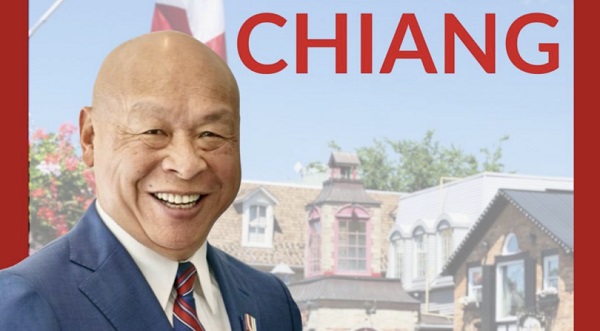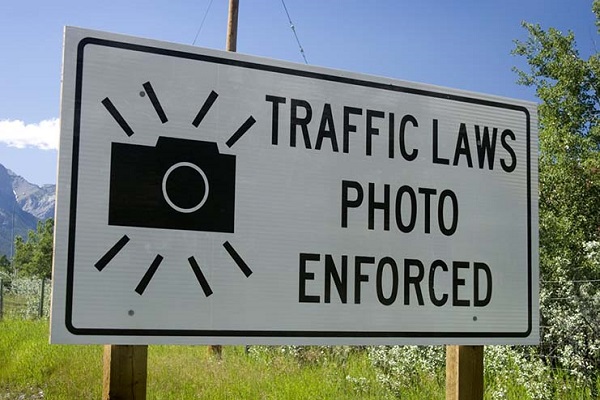News
New family-friendly workplace rules in place

January 02, 2018
Alberta’s new employment standards came into effect Jan. 1, protecting the rights of hard-working Albertans, aligning with the rest of Canada and meeting the needs of today’s workplaces.
As part of a commitment to make life better for Alberta workers and their families, the government introduced The Fair and Family-friendly Workplaces Act, which was passed by the legislature in June 2017. The Employment Standards Regulation was also updated to better protect workers.
“Albertans deserve fair and family-friendly workplaces that support a strong economy and ensure they can take care of their loved ones. After nearly 30 years of inaction by the previous government, Alberta’s laws were out of date and out of step with the rest of Canada. I’m proud that our government brought forward these modern, fair and balanced laws that protect the rights of hard-working Albertans, support their families and help businesses stay competitive.”
Christina Gray, Minister of Labour
Key changes include:
- Job-protected sick leave, long-term illness and injury leave, care for critical adult or child leave, bereavement leave, domestic violence leave, death or disappearance of a child leave and citizenship leave.
- Expanded compassionate care, maternity and parental leave to align with federal Employment Insurance benefits.
- Eligibility for leaves after 90 days rather than one year
- Overtime banking at 1.5 times the number of hours worked.
- Simplified General Holiday Pay and increased eligibility.
- Clarified standards for vacations and vacation pay.
- New standards for termination, termination, pay, group layoffs and temporary layoffs.
- New penalty system for employers found to be contravening the code or regulation.
- New rules for youth employment are in development and expected to be in place May 1, 2018.
Some changes also apply to waged, non-family workers in Alberta’s agricultural sector. The proposed changes have no effect on youth activities such as 4-H, casual work or branding parties, and ensure friends and neighbours can continue to help each other as they have done for generations.
The Government of Alberta has made several products and services available to help employers and employees learn the new rules, including:
- new website and printable fact sheets
- instructional videos
- live webinars
- posters available for print, download or pre-order
- revised toolkit for employers
- frequently asked questions
Employer groups, non-profit organizations and worker representatives are also encouraged to sign up for an available webinar. Requests for in-person information sessions will be reviewed and considered on an individual basis. To book a session, email newesinfo@gov.ab.ca.
Employers and employees with questions can also contact the Employment Standards Contact Centre at 780-427-3731 (Edmonton area) or 1-877-427-3731 toll-free. More information is available online at https://www.alberta.ca/employment-standards-changes.aspx.
Related information
Multimedia
Media
Top Five Huge Stories the Media Buried This Week

NEERA TANDEN: “The military requires accountability. It’s the most accountable organization. You are supposed to be accountable to higher-ups. Politics isn’t supposed to have to do with any of this, and the fact that that’s happening, that they’re just basically saying nothing to do here, is a big problem, I think, for those who believe in accountability.”
@ScottJenningsKY: “I think Republicans aren’t interested in any lectures on accountability in the military after the Biden administration. I mean, the bar for getting rid of a Secretary of Defense is apparently pretty high. You can get 13 people killed and go AWOL and not tell the commander in chief, and that’s not a fireable offense.”
“But these lectures about accountability and national security after letting 10 million people into the country who raped and murdered and committed violent acts and no remorse or accountability.”
NEERA TANDEN: “What are you talking about? They closed the border.”
#4 – Bill Gates says we won’t need humans “for most things.”
During an appearance on The Tonight Show, Jimmy Fallon asked Gates a pretty direct question: “Will we still need humans?”
Gates responded, “Not for most things. We’ll decide … There will be some things that we reserve for ourselves, but in terms of making things and moving things and growing food, over time those will be basically solved problems.”
VIDEO: @TheChiefNerd
REP JORDAN: “Is NPR biased?”
MAHER: “I have never seen any political bias.”
JORDAN: “In the DC area, editorial positions at NPR have 87 registered Democrats and 0 Republicans.”
MAHER: “We do not track the voter registration, but I find that concerning.”
JORDAN: “87-0 and you’re not biased?”
MAHER: “I think that is concerning if those numbers are accurate.”
JORDAN: “October 2020, the NYPost had the Hunter Biden laptop story, and one of those 87 Democrat editors said, ‘We don’t want to waste our readers and listeners’ time on stories that are just pure distractions.’ Was that story a pure distraction?”
Video + Transcript via @Kanekoathegreat
While you’re here, don’t forget to subscribe to this page for more weekly news roundups.
#2 – Utah becomes the first state to officially BAN fluoride in all public drinking water.
For decades, fluoride was accepted as a safe way to prevent tooth decay. Few questioned it.
But last year, in a dramatic legal twist, a federal judge ruled that fluoride may actually lower children’s IQ—and cited evidence that could upend everything we thought we knew.
That ruling sent shockwaves through the public health world.
Judge Edward Chen pointed to scientific studies showing a “high level of certainty” that fluoride exposure “poses a risk” to developing brains.
He ordered the EPA to reexamine its safety standards, warning that the margin for safety may be far too narrow.
At the center of the case: dozens of peer-reviewed studies linking everyday fluoride exposure—even at levels found in U.S. tap water—to reduced intellectual capacity in children.
It wasn’t just one paper. The National Toxicology Program, a branch of the U.S. government, also concluded that higher fluoride levels were “consistently associated” with lower IQ in kids.
They flagged 1.5 mg/L as a risk threshold. Some communities hover right near it.
In response to the growing evidence, Utah passed HB 81, banning all fluoride additives in public water.
The law takes effect May 7. It doesn’t ban fluoride completely. Anyone who wants it can still get it—like any other prescription.
And that’s the point: Utah’s lawmakers say this is about informed consent and personal choice.
This issue is no longer on the fringe. Across the country, cities and towns are quietly rethinking water fluoridation—and some have already pulled out. Utah is the first state to take bold action. It may not be the last.
The conversation surrounding fluoride has shifted from “Is it helpful?” to “Is it safe?” And for the first time in nearly a century, that question is being taken seriously.
VIDEO: @TheChiefNerd
#1 – RFK Jr. Drops Stunning Vaccine Announcement
Kennedy revealed that the CDC is creating a new sub-agency focused entirely on vaccine injuries—a long-overdue shift for patients who’ve spent years searching for answers without any support from the government.
“We’re incorporating an agency within CDC that is going to specialize in vaccine injuries,” Kennedy announced.
“These are priorities for the American people. More and more people are suffering from these injuries, and we are committed to having gold-standard science make sure that we can figure out what the treatments are and that we can deliver the best treatments possible to the American people.”
For years, the vaccine-injured have felt ignored or dismissed, as public health agencies refused to even acknowledge the problem. Now, there’s finally an initiative underway to investigate their injuries and to provide support.
Thanks for reading! This weekly roundup takes time and care to put together—and I do my best to make it your go-to source for the stories that matter most but rarely get the attention they deserve.
If you like my work and want to support me and my family and help keep this page alive, the most powerful thing you can do is sign up for the email list and become a paid subscriber.
International
‘Lot Of Nonsense’: Kari Lake Announces Voice Of America Is Dumping Legacy Outlets


From the Daily Caller News Foundation
By Hailey Gomez
Special Adviser for the U.S. Agency for Global Media (USAGM) Kari Lake announced Friday that Voice of America (VOA) will terminate its contracts with The Associated Press, Reuters, and Agence France-Presse.
VOA, an international broadcasting state media network, is funded by USAGM, with former President Joe Biden requesting in March 2024 a budget increase for the 2025 fiscal year to further support the radio network. In an X post on Friday, Lake announced USAGM will end its “expensive and unnecessary newswire contracts,” adding that some of the major agreements included “tens-of-millions of dollars in contracts” with AP News, Reuters and Agence France-Presse.
“USAGM is an American taxpayer funded News Organization with an 83-year history. We should not be paying outside news companies to tell us what the news is—with nearly a billion-dollar budget, we should be producing news ourselves,” Lake wrote. “And if that’s not possible, the American taxpayer should demand to know why.”
During a meeting with VOA staffers Friday, employees were reportedly told to “stop using wire service material for their reports,” according to Newsmax. Notably, audio, video, and text reports have often been used to supplement coverage from locations where reporters are not present, the outlet reported.
In an interview with Newsmax prior to the official contract cuts, Lake discussed how the agency was finding “a lot of nonsense that the American taxpayer shouldn’t be paying for.”
“Today, I started the process of terminating the agency’s contracts with the Associated Press, Reuters, & the Agence France-Presse. This will save taxpayers about 53 million dollars. The purpose of our agency is to tell the American story. We don’t need to outsource that responsibility to anyone else,” Lake wrote in an X post regarding the interview.
Disputes between The AP and the White House began in February after the corporate media outlet was revoked press access for refusing to call the Gulf of America by its new name. The AP filed a lawsuit on Feb. 21 against White House Press Secretary Karoline Leavitt, Chief of Staff Susie Wiles, and Deputy Chief of Staff Taylor Budowich for injunctive relief.
Lake was sworn in as USAGM’s special adviser on March 3, saying she’s “looking forward” to serving America and “streamlining” the agency. The cuts from the agency follow President Donald Trump’s push for his second administration to review the government’s wasteful spending.
-

 2025 Federal Election2 days ago
2025 Federal Election2 days agoWEF video shows Mark Carney pushing financial ‘revolution’ based on ‘net zero’ goals
-

 2025 Federal Election2 days ago
2025 Federal Election2 days agoThree cheers for Poilievre’s alcohol tax cut
-

 2025 Federal Election2 days ago
2025 Federal Election2 days agoMORE OF THE SAME: Mark Carney Admits He Will Not Repeal the Liberal’s Bill C-69 – The ‘No Pipelines’ Bill
-

 2025 Federal Election2 days ago
2025 Federal Election2 days ago‘Coordinated and Alarming’: Allegations of Chinese Voter Suppression in 2021 Race That Flipped Toronto Riding to Liberals and Paul Chiang
-

 Business2 days ago
Business2 days agoCanada may escape the worst as Trump declares America’s economic independence with Liberation Day tariffs
-

 2025 Federal Election2 days ago
2025 Federal Election2 days agoDon’t let the Liberals fool you on electric cars
-

 2025 Federal Election2 days ago
2025 Federal Election2 days agoLiberal MP resigns after promoting Chinese government bounty on Conservative rival
-

 2025 Federal Election2 days ago
2025 Federal Election2 days ago‘I’m Cautiously Optimistic’: Doug Ford Strongly Recommends Canada ‘Not To Retaliate’ Against Trump’s Tariffs
















